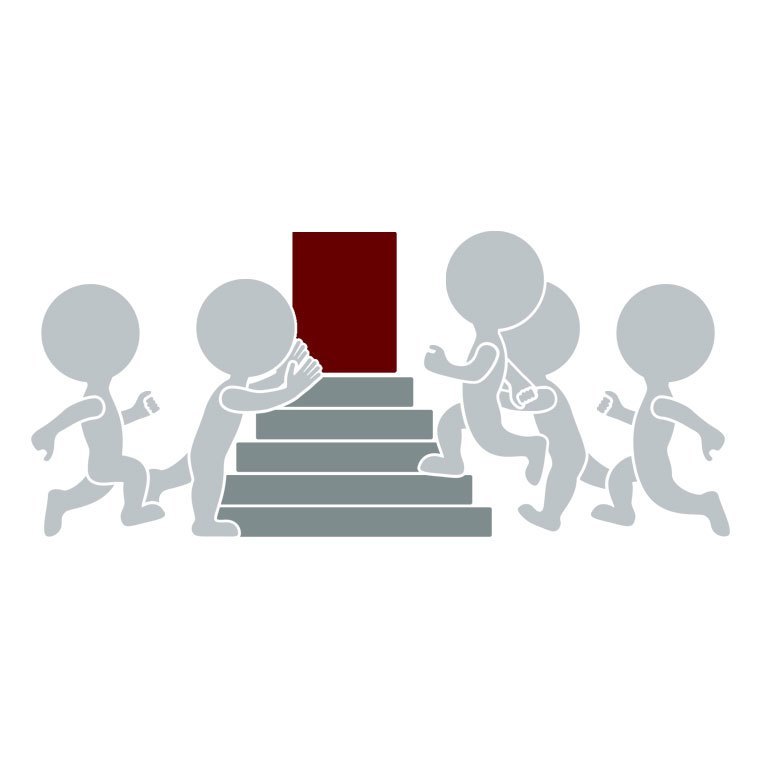Although it might not make Michael Kaiser or Rocco Landesman very happy, the growth of citizen critics and independent reviewers is beginning to have an undeniable impact on performing arts organizations. Case in point, Holly Mulcahy published an article at Neo Classical today titled Yelp Me Out which examines orchestra reviews at the social media oriented review website, yelp.com.
 It’s a fascinating article that demonstrates the benefits of letting go of control and encouraging ticket buyers to post concert event feedback at an independent platform. Go give Mulcahy’s article a read but make sure you do your own orchestra oriented digging around at Yelp as well.
It’s a fascinating article that demonstrates the benefits of letting go of control and encouraging ticket buyers to post concert event feedback at an independent platform. Go give Mulcahy’s article a read but make sure you do your own orchestra oriented digging around at Yelp as well.
I’ve been doing exactly that for the last several days and one observation that sticks out in my mind is how frequently Yelp reviewers focus on non-artistic elements of the concert experience.
Sure, there are plenty of music critic oriented observations but there’s a wealth of useful feedback covering everything to from parking to customer service. Sure, some of these issues are out of an organization’s hands but the Yelp reviews provide some useful ammunition when negotiating with venue owners or nearby business.
As for the box office complaints, one of the common themes among reviews was displeasure over fees and return/exchange policies. Fellow culture blogger Lisa Hirsch has followed this issue in a number of posts, most recently in an entry from 11/17/2011 which examines exchange policies at the San Francisco Symphony and Opera.
But what’s also worth noting in Yelp reviews is what Mulcahy’s article defines as a lack of interaction between orchestras and Yelp reviewers.
A fantastic feature that Yelp offers is the ability for companies or businesses to communicate with members by leaving responses to individual reviews. I did not look at every single orchestra in the country, but as of today, the only orchestra I found that took the time to respond to reviews and communicate with Yelp members was the Boston Symphony Orchestra. Whoever “Matt H. of Symphony Hall” is, he should be applauded for his diligence in responding to most Yelp members who took time to leave a review.
I’m going to go out on a limb and guess that “Matt H.” is Matthew Heck, Office & Social Media Manager at Boston Symphony Orchestra and if I’m correct then kudos to Heck. Mulcahy is right, he should be commended and every other orchestra out there should follow his lead and make a habit out of interacting with Yelp reviewers whether it is just to say thanks or provide some assistance.
All of this reminds me of another review oriented website, tripadvisor.com where it is common for hotel managers to respond to negative reviews and encourage the reviewer to get in touch. The smart hotel reps aren’t defensive, even when a reviewer is clearly being catty and if you follow some of those threads, you can find instances where a negative review was edited to include the positive impact of the post-reservation interaction with the hotel rep.
Lastly, one disappointing aspect to all of the Yelp orchestra reviews I came across is how few there were compared to other arts organizations, here’s a small sampling:
- Detroit Symphony: 20 reviews (Max M. Fisher Music Center had zero).
- New York Philharmonic: 11 reviews (Avery Fisher Hall had 26).
- Philadelphia Orchestra: seven reviews (Kimmel Center for the Performing Arts had 67).
- Utah Symphony & Opera: four reviews (Abravanel Hall had five).
However, there were a few bright spots such as the San Francisco Symphony had 140 reviews and Boston Symphony had 109 (although mostly as “Symphony Hall), and Chicago Symphony had 81 reviews.
In the end, something like Yelp can seem like a big gamble to a field that, on average, engages in very restrictive communication practices. But there’s real benefit in letting go of that control and realizing that in the eyes of single ticket buyers, we’re a in competition for ticket buying dollars just like any other form of entertainment.
Now It’s Your Turn
Here are three simple action items everyone should try before the end of the season:
- Make sure your orchestra is listed at Yelp and open a free business account (maybe even create a Yelp Deal).
- Pick a concert or two to encourage ticket buyers to leave a review; include a QR code on tickets and/or program books, post something at your website, and mention it in corresponding promotional material, etc.
- Make a habit out of replying to reviews (which Yelp allows business account holders to do publicly and privately).
Before the season is out, I’d love to hear about some of these experiences so take a moment to document your process then get in touch to let me know what happened.



Firstly, thanks very much, Drew, for the shout out. It’s nice to be recognized for the effort that goes into maintaining a solid social media presence. As far as Yelp is concerned, my approach to our page is rather simple. I check in weekly or biweekly and respond publicly to as many comments as possible, addressing first any unanswered questions, complaints, or customer service issues, then simply thanking folks for their input. I thank folks for positive reviews, delicately address negative reviews, and ignore aggressive for militant reviews that seem to fall outside the realm of reasonable customer service. I do not have to run my comments through a PR filter. I have a good handle on BSO policies from working at the Hall for 4 years and Tanglewood for 7 and a sense of how to phrase things so that they are clear. I have the freedom to respond as I see fit, a detail that I hope keeps our voice on social media relatively uniform across platforms. Yelp is well worth the time required to maintain a successful site. It’s especially effective as a tool to correct misinformation and spread the word about special discounts like our $20 tickets for patrons under 40, but also a rare opportunity for a large organization to take on a personal voice and address grievances in a direct, reasonable, and public way.
Terrific Matthew, many thanks for taking some time out of your day to reply. I’m sure everyone interested in doing this at their respective orchestras will find all of your insight invaluable!
Haven’t looked too much into Yelp other than setting up the business profile. Responding to the reviews is a great idea. Yelp’s advertising and highlighting options are pretty expensive ($3 per click for ads!).
Yelp actually discourages companies to solicit reviews. From their Help files:
Should I ask customers to write reviews for my business?
Probably not. It’s a slippery slope between the customer who is so delighted by her experience that she takes it upon herself to write a glowing review and the customer who is “encouraged” to write a favorable review in exchange for a special discount. And let’s be candid: most business owners are only going to solicit reviews from their happy customers, not the unhappy ones. Over time, these self-selected reviews create intrinsic bias in the business listing — a bias that savvy consumers can smell from a mile away. Don’t be surprised, then, if your solicited reviews get filtered by Yelp’s automated review filter.
Interesting…
Good observations Marc, especially about encouraging folks to write a review but along those same lines, I don’t think it is crossing a line to make sure patrons know you’re on Yelp and to that end, a little QR code linking to the respective business page w/o any mention of writing a review should do the trick.
I also agree with your outlook on businesses only pushing positive reviews but I don’t see how they are going to really do that in a general “we’re on Yelp” mention. The same is true for any other social media platform (Twitter, FB, etc.).
I agree that not having control over review filtering is a good thing (although there are those who would argue that Yelp does allow a pay-to-edit service for businesses, but that’s a separate topic) and all of the incentives in the world won’t cover up any fundamental problems that make it into multiple reviews. So it’s certainly not perfect, but one of the better options so far.
Empowering the ticket buyer is only a good thing for arts groups. They ultimately benefit from a higher quality and quantity of honest feedback (but we shouldn’t be surprised to see some folks attempting to juice the system; but they are only hurting themselves in the end).
I emailed this to Drew last week, but wanted to state it here: Yelp has some ethical problems. You simply can’t count on them to publish politely written, negative reviews or publish positive reviews.
– A friend recently had a bad experience with a business in Oakland. She wrote a (polite, factual) negative review; it was removed. She did this again; it was removed.
– My first dog’s wonderful trainer, who is well-known and highly respected in the Bay Area, had positive reviews removed or never published. Here’s a NY Times article about Yelp that includes her story:
http://www.nytimes.com/2009/03/03/technology/start-ups/03yelp.html
I think the uses being made of Yelp by performing arts orgs are fine, but boy, Yelp itself is simply not trustworthy.
No doubt that transparency is something any site like Yelp will need in order to maintain legitimacy. I did notice the NYT article is from 2009 and it makes me wonder what changes have been put into place at Yelp (if any). Does anyone out there have some verifiable info?
The other incident I reported happened within the last six weeks, and the friend in question is unimpeachable.